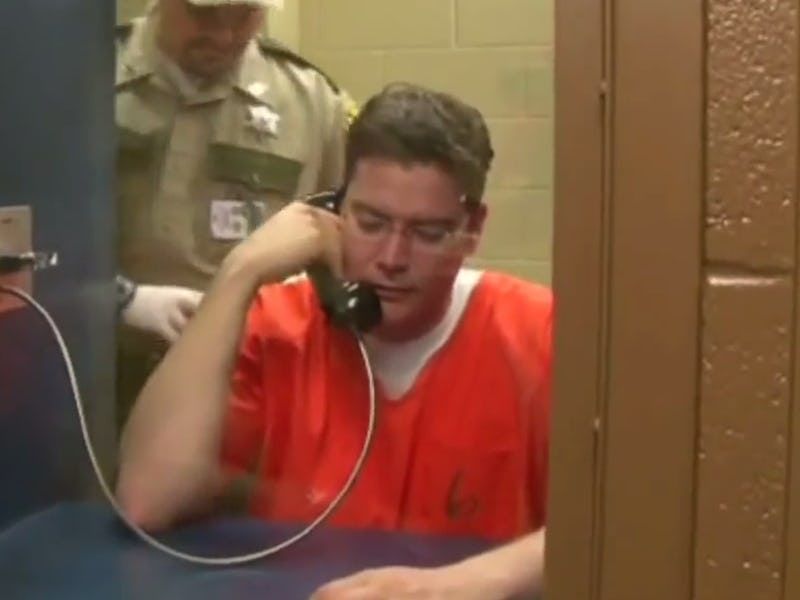Companies Are Fighting for the Rights to Prisoners' Video Chat
There are billions to be made on the backs of the desperate.

If you're close with any of the estimated 2.4 million Americans currently behind bars, you are a cornerstone of Securus Technology's business plan.
We'll get into Securus' predatory history as the "prison phone monopoly" in a bit, but for now let's focus on the future of inmates' communication: the video call. This does not mean Skype for prisoners; there is no Family Time. More likely it means forcing visitation hours to take place over poorly designed tech, and paying something like $1.50 a minute for the privilege. To put that in perspective, you could easily chose a phone plan, were prisoners allowed to shop around, that runs anywhere from 6 cents to 25 cents per minute. Even against those rates, video will be a racket. Two minutes would cost more than a gallon of gas at average prices. That's big money to families who already are on the edge, who account for a hell of a big percentage of who's serving time.
There’s a lot of profit in harvesting quarters from the poor. Talking to prisoners is so lucrative, Securus CEO Richard Smith confirmed his company has been issued 130 patents and has another 85 pending, with the majority centering around inmate calling services. In a March news release, Smith said rulings in Securus’s favor over patent infringement would net the company more than $50 million in licensing fees. His company is now valued at more than a billion dollars. It makes you wonder how much Sarah Koenig had to budget for all those calls to Adnan Syed on Serial.
The prisons have been sold on the move to video as a cost saving measure — far cheaper than having to pat someone down and keep a guard on watch when someone wants to see an inmate in real life. Until May, Securus actually required institutions who used their services to ban face-to-face interactions. A Quartz report on the services found that when Securus moved in, inmates' contact with their loved ones, on balance, fell. No wonder, considering service fees, connection fees, and the suspicious rate of dropped calls and disconnected chats.
Now Securus is having to defend its patent blitz as more than just trolling. The International Business Times has an excellent write-up of the low-key struggle between Securus and competitor Global Tel*Link over who really owns what piece of the prison communications tech pie. Securus is, so far, 16-0 for patent challenges, leaving it understandably cocky.
To the victor will go: the right to shake down poor people. The fight wouldn't have even started if the company's hadn't seen the bottom line drop when the FCC decided that average price of phone calls through prison tech firms was so obscene (this woman paid $3000 over a year to to talk to her husband about an hour a week) that the feds capped interstate call rates in 2013, spurring companies to find new revenue sources. Regulations work. The Prison Policy Initiative noted that New York ended up with the best phone rates in the country after passing laws requiring prisons to take the lowest bid on their communications systems. You could do worse than to read the full study on problems with the move towards video visitation. The high stakes over connection is going to cut off a lot of people who could really use the human contact.